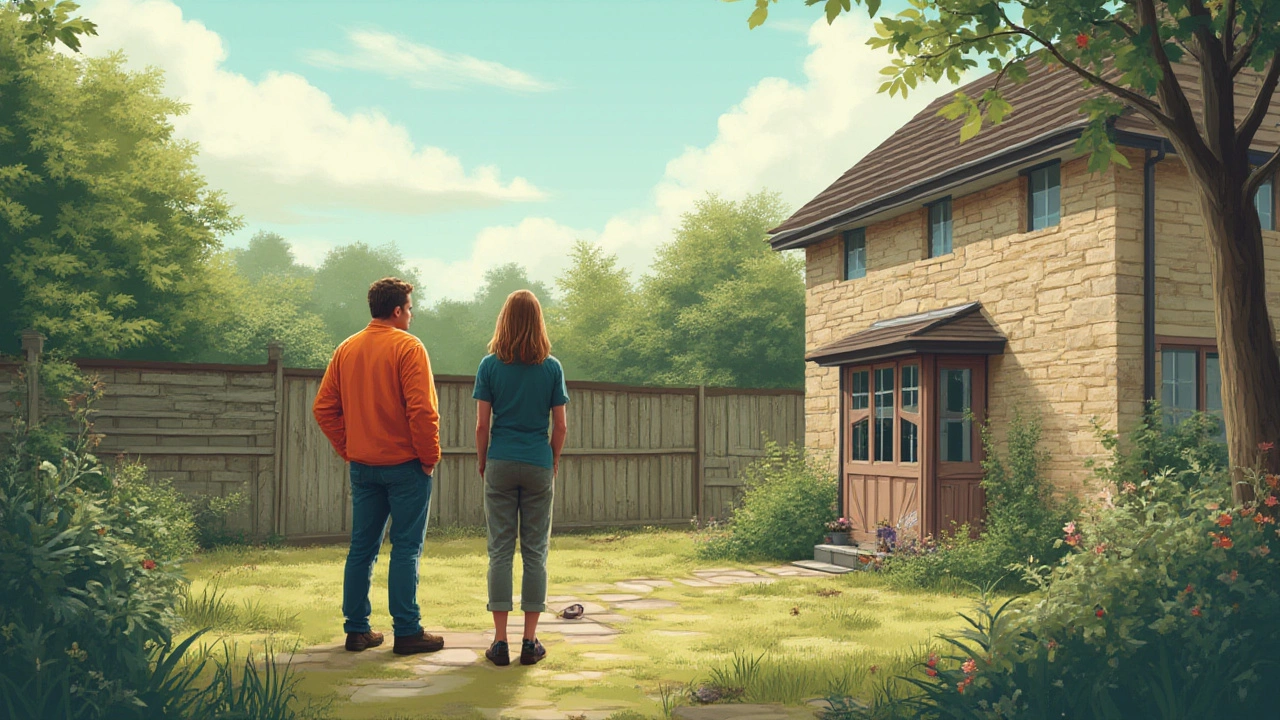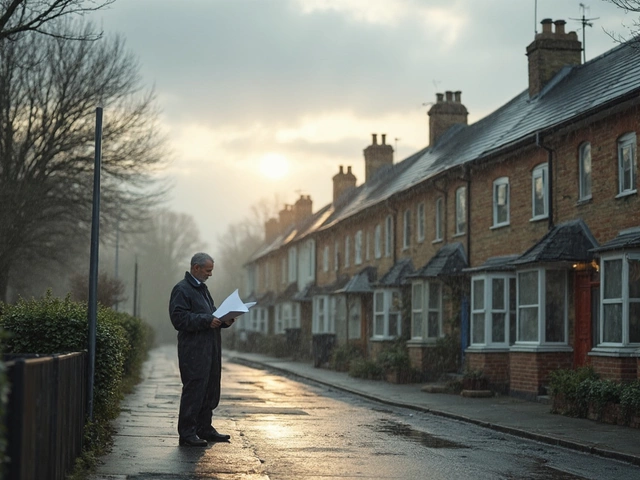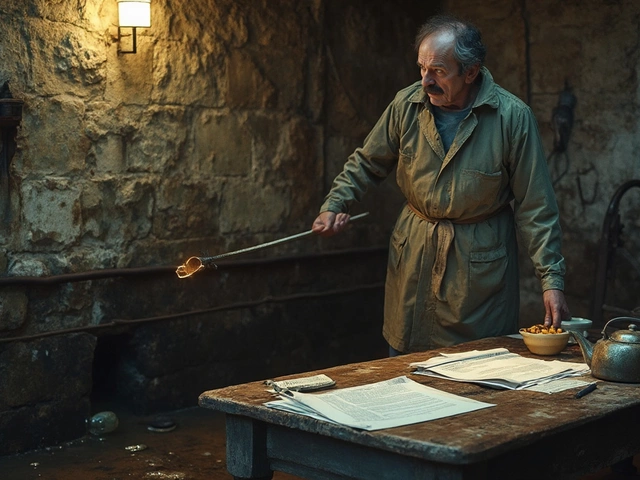Lawn looking sad? Thinking of transforming your yard but dreading the cost? You’re definitely not the only one who hesitates before talking dollars with a landscaper. Here’s the thing—negotiating with a landscaper isn’t just about paying less. It’s about getting exactly what you want without feeling short-changed or overwhelmed. Some folks hand over control, some avoid talking budget entirely. If you want the best value for your cash and your space, you’ve got to get smart about it. Most people don’t realize you can negotiate details like plant types, maintenance agreements, or even the project timeline—sometimes saving thousands. One landscaping industry study found more than 40% of homeowners wish they’d pushed harder on price and project details. Why? They regret not catching hidden charges, skipped steps, and unclear contracts. You wouldn’t buy a car or renovate a kitchen without a clear conversation—so why go silent with your landscaping pro?
Understanding What Landscapers Really Value
Before you even speak to a landscaper, think about this: what does your landscaper actually want from this project? Yes, they want to earn money. But that’s not all. They want satisfied clients who rave about their work and, maybe even send more jobs their way. Landscapers care about convenience, clear expectations, building a local reputation, and not dealing with last-minute changes that kill their profit margin. If you understand this, you’re already ahead.
It’s a smart move to start by getting an idea of what typical landscaping projects cost in your area. Services like Angie, Houzz, and HomeAdvisor regularly update pricing data for everything from basic lawn mowing to complete backyard makeovers. For example, the average cost for a basic new lawn install (with sod) in 2025 across the US hovers between $4,300 and $10,000 for a typical suburban lot, but major city jobs can run double that. Hardscaping projects like patios or retaining walls explode upward from $6,500 to $25,000 or more. Flower beds, privacy hedges, irrigation—each comes with its own price tag. Make sure you arrive at negotiations knowing what “normal” looks like—don’t rely on the landscaper to do your homework for you.
Most reputable landscapers will have their own “menu” of services and line-item pricing, but it’s very common for them to mix in package discounts or custom combos. What many clients miss is that labor charges make up most of the bill, not material costs. If you ask about timing (“Is it cheaper to book during your slow season?”), or offer to let them reuse leftover materials from another project, you’ve given them a potential way to cut your price without reducing quality. Then there’s project scope: If you can be flexible on plant types, or agree to DIY some of the finishing touches like mulching or watering, your landscaper can work with you. And let’s not overlook the little stuff—skip the instant-gratification mature trees for smaller, young ones. You’ll save money now and watch your yard grow in value.
Red flags are everywhere, though, so watch out. A landscaper unwilling to itemize the bid, uses “allowances” instead of real prices, or pressures you to sign before seeing their insurance—all classic warning signs. Also, don’t fall for a quote that’s way below the others—cheap can mean trouble, poorly trained crews, or change orders that pop up the moment work begins. Smart homeowners get at least three solid bids, compare line by line, and ask each company about the gray areas or any “potential extra costs.” If the numbers don’t add up, trust your gut.

The Negotiation Process: More Than Haggling Price
So you’ve checked out the landscaper’s work, scanned their Google reviews, and the price seems fair-ish—but you still want to trim a bit or lock in a few extras. How do you start the conversation? Some experts say honesty is the best opener: “Here’s my budget and what I want to achieve. Can you make this work?” Often, landscapers will swap pricier features for mid-range options or drop non-essential upgrades to hit your number.
The best negotiations are conversations, not battles. Landscapers genuinely appreciate questions like, “Where do you see the most cost in this design?” or “Would a different material bring the cost down?” You’re showing respect for their expertise. And let’s be honest, nobody likes a customer who demands a deep discount without understanding what’s included. If you’re flexible on when the job starts, mention it: off-season projects sometimes mean more room for price breaks. If you’re willing to pay cash or pay a bigger chunk up-front, some landscapers will shift a bit on the total.
Want to save a few more bucks? Here are some ways clients have found real savings, pulled from real deals over the last year:
- Bundling jobs. If you need a fence and a patio, ask for a combined price—mobilizing a crew for both can save the landscaper effort, which may knock hundreds or thousands off your total.
- Sharing with a neighbor. If two homes need fresh sod or shrub work, landscapers love that—they can buy materials in bulk and save time moving equipment. If you’ve got a neighbor eyeing a makeover, team up.
- Picking up some grunt work yourself. If you can handle site prep, basic cleanup, or watering after installation, that’s labor the landscaper can leave off your bill. Sometimes they’ll even price it as two options—“turnkey” or “DIY finish.”
- Agreeing to a longer project window. Sometimes weather and other jobs get in the way—if you give them the flexibility to schedule you in at slow times, they may sweeten your deal to fill their calendar.
Then there’s the art of walking away—if you don’t feel respected or if the numbers don’t work, it’s perfectly acceptable to let a landscaper know you’re moving on. Landscape pros respect a clear-headed client who knows what they want. If you feel pressure or frustration anytime during the process, step back. A legitimate landscaper will welcome your questions and be eager to keep you comfortable.
Don’t skip the paperwork, either. After you’ve hammered out those details, ask for everything in writing, from plant varieties to mulch depth, watering needs, and warranty terms. Review it—not in front of them, but quietly at home. One recent survey found almost a third of landscaping contract disputes could have been solved if both sides had double-checked the fine print upfront. If something’s confusing, ask to reword it. The clearer your contract, the less likely your lawn dreams end with a headache or court date.

Insider Tips and Long-Term Value: What the Pros Won’t Tell You Upfront
The trickiest part of dealing with landscapers isn’t getting a good price—it’s making sure you don’t sacrifice quality for it. Cut corners in the wrong place, and that dreamy backyard will struggle within a year. Landscapers don’t always spell this out, but it’s your right to ask about plant selection (native vs. imported), soil amendments, drainage grading, and mulch types. Native plants are typically less expensive and resist disease better, slashing long-term costs. Imported palms and lush green lawns might grab eyes, but they can hammer your water bill or die off during a tough summer.
Irrigation’s a huge one. The National Association of Landscape Professionals found last year that improper irrigation is the #1 reason new landscapes fail in their first three seasons. Ask: does your quote include irrigation tweaks or new lines for everything that’s changing? Some pros charge a premium for new systems but may leave you out to dry on the repair front. If they try to skip this or sell you a separate maintenance contract, dig in your heels and push back—bundle future care into your upfront deal whenever possible.
Ask for references—then actually call them. Don’t just ask about pretty flowers; dig deeper about reliability and problem-solving. Did the landscaper follow up after planting? Did any plants die or shift? Did extras sneak into the final bill? These stories tend to pop up in real conversations, not polished testimonials.
Here’s a fun fact: most issues with landscaping don’t happen during installation—they show up months later. Mulch that washes into mulch beds, trees that lean, sod that browns. That’s why top landscapers build in check-ins or include a plant warranty—30, 60, or 90 days after install. Ask how they handle warranty claims—and make sure the promise lands in your contract.
The biggest favor you can do yourself is to slow down and think long-term. Cheap materials or a rush job lead to repairs, not savings. Ask your landscaper if there’s a slower-growing, hardier plant that saves money now but will thrive for years. Go easy on complicated, high-maintenance features if you’re more of a weekend warrior than a daily gardener. Get honest about maintenance, and lock in a service plan for the first year if you know you’ll struggle to keep things alive.
End of the day, negotiating with your landscaper is about striking a win-win: the right price for you, a fair job for them, and a space you’ll actually enjoy. If you’re patient, thorough, and ask the right questions, you’ll nail it. The hardest part? Sometimes, it’s just starting the conversation.





